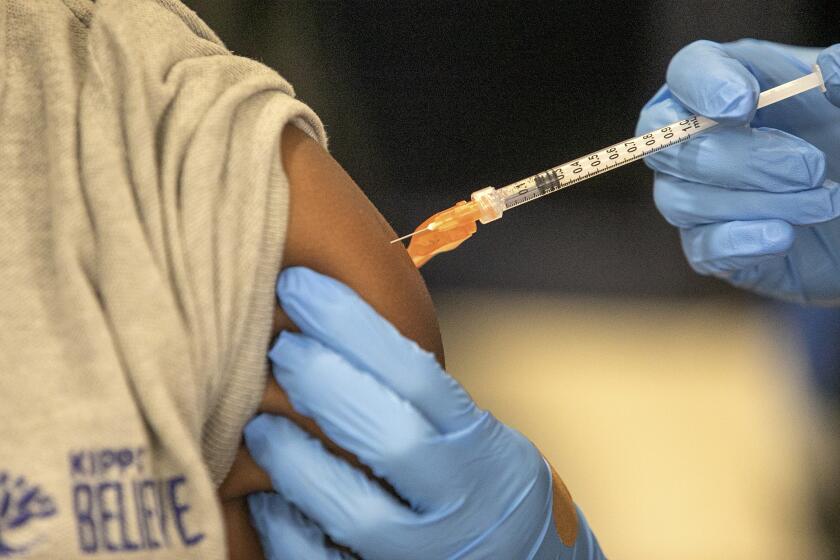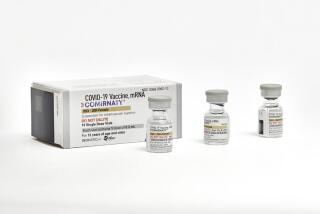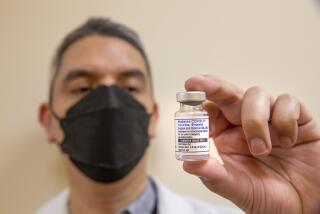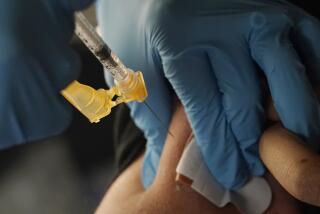EU clears Moderna shot for young kids and Pfizer for boosters
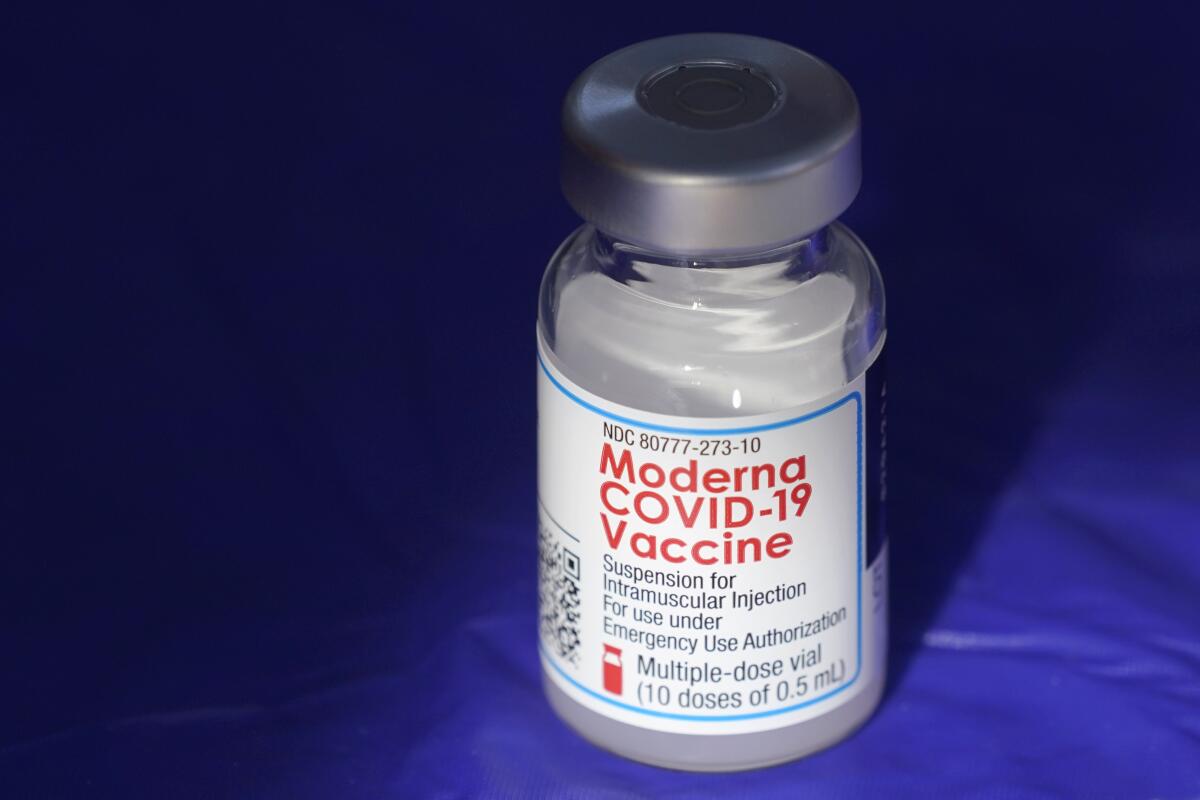
In the European Union, the Moderna COVID-19 vaccine has been authorized for children ages 6 to 11. The Pfizer-BioNTech vaccine is already approved for ages 5 and older.
- Share via
AMSTERDAM — The European Medicines Agency said it had authorized Moderna’s COVID-19 vaccine for children ages 6 to 11 and recommended booster shots of Pfizer’s vaccine for those 12 and older.
The decisions were aimed at providing further protection against COVID-19 for children across Europe.
At a news briefing Thursday, the EU regulator’s vaccines chief Dr. Marco Cavaleri said the Moderna vaccine for younger children will be a half-dose of what is given to older teens and adults. He said research showed young children had an immune response comparable to that seen in older populations “as measured by the level of neutralizing antibodies” against the coronavirus.
Cavaleri said the Moderna shot was also being recommended for use as a booster dose in people who had received other vaccines. The Pfizer-BioNTech vaccine was granted a green light for use in children ages 5 and older in November.
Cavaleri said data from countries including Israel and the U.S. in more than 400,000 children showed that a third dose of the Pfizer-BioNTech vaccine in children 12 was safe and effective.
“No new safety signal was identified,” he said, adding that scientists looked in particular for cases of heart and chest inflammation, side effects that have previously been linked to the shot. “Those cases were very rare and most [people] recovered without intervention.”
A new analysis says that COVID-19 vaccines are unlikely to trigger a rare inflammatory condition linked to coronavirus infection in kids.
Children are typically at much lower risk of severe COVID-19 but are still vulnerable amid high levels of transmission.
Cavaleri said while some European countries have started offering their older populations a second booster dose based on concerns their immunity may fade quicker, the EMA has made no such recommendation.
“At this stage, there is not enough evidence to establish the need for a second booster dose in the general population,” he said
In recent weeks, COVID-19 cases and deaths across much of Europe have dropped significantly after peaking in late January. But numbers are still rising in some places with lower vaccination rates, including Russia and Turkey.
